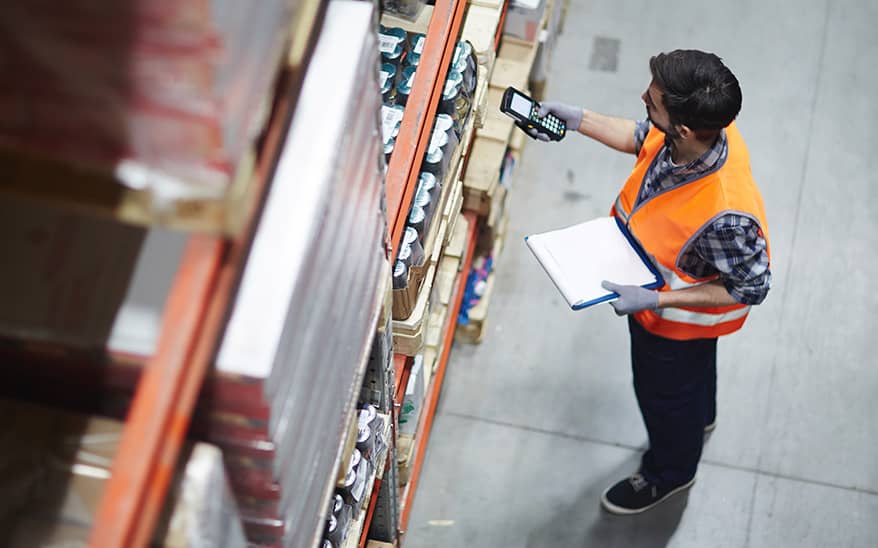Customers take centre stage at EMEA Exchange Connect
- 14 October 2020
- By Manhattan Staff

October the 5th saw the sixth instalment of Manhattan Associates’ annual Exchange event in Europe. Leading brands from across the globe joined members of the Manhattan team to relive their supply chain journeys from the last eight months, highlighting how they had not only managed to survive the pandemic, but in many cases, actually thrive as a result of their technology partnerships with Manhattan.
“One thing is even more obvious than ever this year,” Eddie Capel explained on the live broadcast from Atlanta, “is the immense importance of retail and food shops for our societies.”
Customers from countries around the globe (including a couple from as far afield as Singapore and Australia) joined Manhattan's opening session keynote and reported on their experiences and successes over these past months. DHL Supply Chain, Sketchers, L'Oréal, British logistics company Wincanton and fashion company Matalan were just a few of the participants.
The message was clear: from cloud-native applications, to robotics and automation, technology and digitization has been key to companies abilities to weather the effects of the pandemic and will remain central to their successes in the longer-term.
“Never before have global supply chains been under such pressure as in 2020,” said Henri Seroux, senior vice president EMEA at Manhattan. “The combination of rapidly increasing ecommerce volumes, disruptions caused by the pandemic and scarce storage space is creating unprecedented challenges for companies and outdated technologies are amplifying the negative factors of the pandemic.”
Changing customer behaviour
For the retail sector, the coronavirus surge in April and May meant unexpected peak season occurrences on a daily basis, and almost exclusively online. While companies usually spend months preparing for peak seasons around Black Friday or Christmas, this time customer demand happened simultaneously, unexpectedly and relentlessly.
While online orders surged, shops closed at the same time. This left companies that had previously relied on cross-channel business models playing catch up. Now that many shops are open again, the challenge of shifting consumer behaviour is still having a significant impact on retail operations
“Now, consumers are demanding much more flexible purchase and delivery options, such as the ability to pick up goods ordered online in the shop. The seamless integration of online and offline shopping experiences is something of the Holy Grail for businesses at the moment,” explained Seroux.
Adapting and evolving fast
Exchange also represented an opportunity to present Manhattan’s latest Manhattan Active Warehouse Management® customer for the first time.
L'Oréal, the world's leading cosmetics manufacturer handles over seven billion units of goods in its logistics centres each year. Cosmetic products are sold in every marketplace from supermarkets, drugstores, pharmacies, beauty and hairdressing salons to online, resulting in a supply chain that is consequently, highly complex.
L’Oréal’s implementation of its new warehouse management system throughout its distribution centres in Europe will start in the middle of 2021 and will be implemented worldwide by 2023.
“Our business is growing and is making new demands in terms of capacity,” explained Francisco Garcia Fornaro, supply chain group director, L'Oréal.
While the last eight months have been highly challenging, it also manifested itself as a period of innovation and exploration at Manhattan. Traditionally, large teams normally help customers on-site to set up new software, this year however, for the first time, systems were implemented completely remotely.
Being able to react quickly and effectively to industry, economic, consumer, and public health policy changes is now more important for companies than ever before. British fashion and lifestyle company Matalan showcased how it upgraded its entire warehouse management system in the middle of the UK’s coronavirus lockdown with a ‘go live’ delivered entirely by Manhattan’s team, virtually.
Cloud brings clear advantages
The word ‘agility’ has been a frequently used term in the supply chain and logistics industry for years, but in 2020, it became clear just how critical it is to have flexible and rapidly deployable technology solutions. Richard Gifford, CIO of Wincanton (Britain’s largest logistics firm) explained the multiple benefits of cloud-based technology within the space.
“Many companies in the logistics industry still rely on old systems that have been in use for several decades. They are robust but, in many cases, inflexible. Modern, cloud-based systems make it easier to add new customers to the system and integrate new logistics locations. If the order volume increases, the system architecture expands automatically,” commented Gifford.
Man and machine in harmony
As you would expect, no technology discussion is complete nowadays without some reference to the man (and woman) and machine discourse, and it was on show at Manhattan Exchange too.
“Machines offer speed, but people are more agile. Most supply chain managers, therefore, rely on a combination of these two resources. The example of shoe manufacturer Sketchers shows this,” added Seroux.
“Sketchers, the company, has been growing strongly in Europe for years and continues to do so even during the current pandemic. It relies on a combination of people and automation in its distribution centres. The pandemic proved one thing above all, even if the world stops turning, logistics never stops,” commented Sophie Houtmeyers, vice president distribution operations at Sketchers in Wallonia.
If you missed our EMEA Exchange event this year, don’t worry, next year we’ll be back in person in Berlin, so be sure to make a note of 11-13 October 2021 in your diary now! In the meantime, make sure you follow @ManhAssocNews on Twitter and Manhattan Associates on LinkedIn for all our latest customer and product news.




